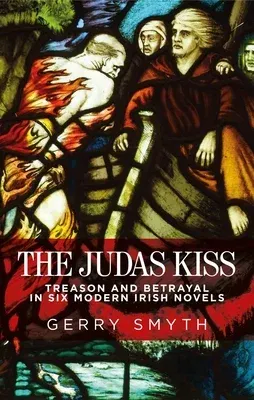Gerry Smyth
(Author)The Judas Kiss: Treason and Betrayal in Six Modern Irish NovelsPaperback, 7 March 2018

Qty
1
Turbo
Ships in 2 - 3 days
In Stock
Free Delivery
Cash on Delivery
15 Days
Free Returns
Secure Checkout

Print Length
264 pages
Language
English
Publisher
Manchester University Press
Date Published
7 Mar 2018
ISBN-10
1526127105
ISBN-13
9781526127105
Description
Product Details
Author:
Book Format:
Paperback
Country of Origin:
US
Date Published:
7 March 2018
Dimensions:
21.34 x
13.72 x
2.03 cm
ISBN-10:
1526127105
ISBN-13:
9781526127105
Language:
English
Location:
Manchester
Pages:
264
Publisher:
Weight:
317.51 gm